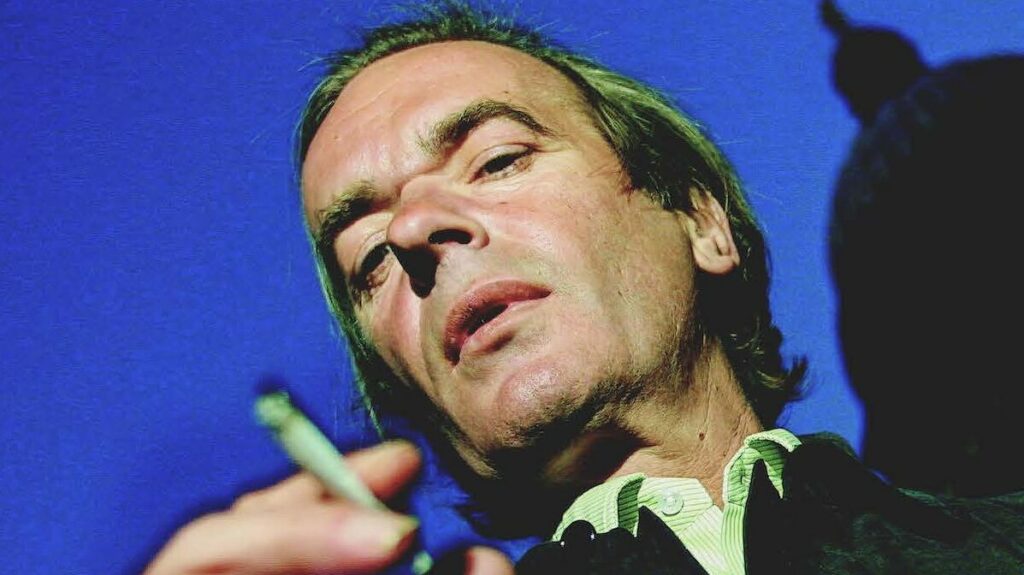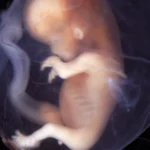Literature, Reviews, The Sexual Revolution
Martin Amis and the Sexual Revolution
Novelist, memoirist, and literary celebrity Martin Amis died at his Florida home on May 19, 2023. He succumbed to esophageal cancer 12 years after his best friend Christopher Hitchens, a fellow British expatriate, died of the same disease in a Texas hospital. He was 73. After half a century of era-defining writing, Amis leaves behind a memoir, two short-story collections, 15 novels, and seven books of journalism and history. Amis, Hitchens, and their literary set rose to fame as the sexual revolution dawned, and their lives and work were inextricably intertwined with the social upheavals that transformed the West.
There was a morbid symmetry to the lives of Amis and Hitchens—cancer, likely caused by their shared lifestyle, at the end, near misses at the start. Hitchens wrote that he was in his “early teens when my mother told me that a predecessor fetus and a successor fetus had been surgically removed, thus making me an older brother rather than a forgotten whoosh.” Martin’s father, Kingsley Amis, the legendary comic novelist, found an abortionist when his 19-year-old girlfriend Hilly became pregnant, but changed his mind out of concern that the “nasty man” might harm her. When she became pregnant with their fourth child, however, he forced her to abort Martin’s younger sibling.
Amis’ novels—like those of most of his contemporaries—are not my cup of tea. He was a genius prose stylist, but as with Phillip Roth and John Updike, the pornographic nature of many passages makes them unreadable for me. “What I’ve tried to do is create a high style to describe low things: the whole world of fast food, sex shows, nude mags,” he told The New York Times Book Review in 1985. “I’m often accused of concentrating on the pungent, rebarbative side of life in my books, but I feel I’m rather sentimental about it.” That’s the problem. Technical skill aside, his writing often seems like literary masturbation.
That is not to say that Amis was unwilling to tackle the ugly side of the sexual revolution, a subject he frequently examined in his journalism. In 2012, for example, he prophetically told Jacob Weisberg of Slate that pornography was going to “change human nature.” He was one of the first (male) liberals to identify the cultural impact that ubiquitous pornography would have on upcoming generations.
After a trip to a porn set, Amis professed his horror at what he found. He observed that the impact of the industry:
[It is] incalculable, and will change the nature of sexuality from here on. One suspects that any child old enough to walk will within a few months have access to it. I think it’s a great attack on innocence, and I know from personal conversations with my children that pornography determines the style of the whole operation. And since that form is … misogynistic, I can’t believe that’s a good thing. [Porn is] widening the chasm between sex and love. Pornography must set itself against significance in sex.
READ THE REST OF THIS COLUMN AT THE EUROPEAN CONSERVATIVE








